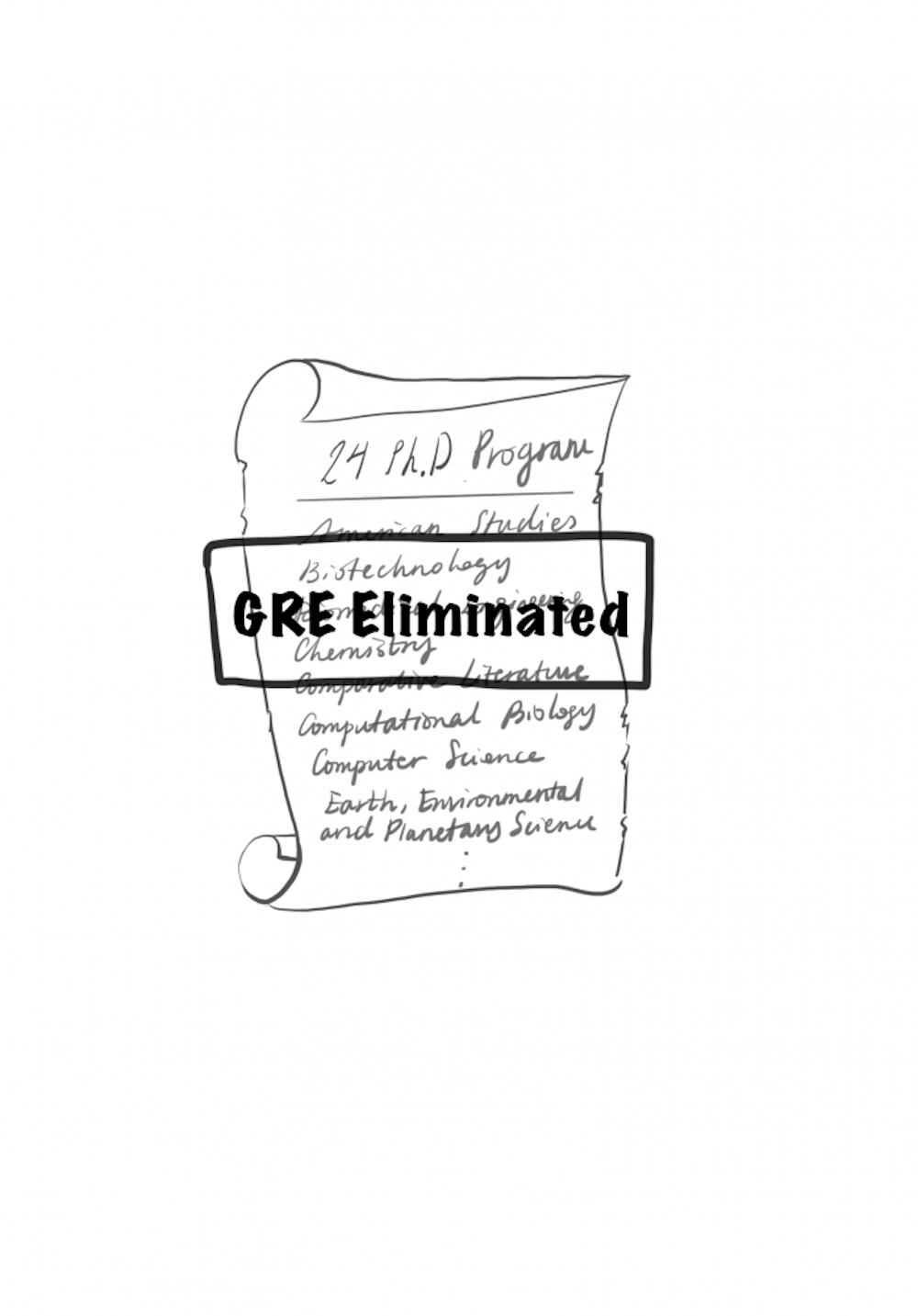The University will no longer require general Graduate Record Examinations scores for 24 of its doctoral programs.
“This is not a dramatic shift, as those programs who dropped the requirement had been de-emphasizing use of GRE scores in the admission process for some time,” wrote Dean of the Graduate School Andrew Campbell in an email to The Herald.
After the policy change earlier this month, each of the 54 departments that offer doctorates could decide whether to keep the requirement. Departments across disciplines — including Religious Studies, Chemistry and American Studies — chose to eliminate the requirement.
“The Graduate School seeks to ensure that programs have the opportunity to attract the strongest applicants to their pool,” Campbell wrote. As a result, “individual programs should make this decision on whether or not to require the GRE.”
The Department of Italian Studies chose to make the GRE optional in part because it enrolls international students who may be less familiar with American standardized testing, said Massimo Riva, the department’s interim director of graduate studies. “We noticed excellent students had not done particularly well on the test … so we didn’t think it was particularly useful for our purposes,” he said.
The department was interested in continuing to require the GRE for American students because it served as a useful test for students’ Italian skills, but they were not able to do so due to logistical concerns, Riva added.
The Department of Mathematics will also no longer require the GRE. Thomas Goodwillie, the department’s director of graduate studies, said that success on the GRE is “not highly correlated with success in graduate school,” though “it is highly correlated to some other things.” For example, members of underrepresented minorities tend to do worse on the GRE, he said.
Thus, the department decided to eliminate the requirement “partly for diversity reasons and partly because I was convinced that the GRE wasn’t a very good predictor of success in graduate school,” Goodwillie said.
Milen Ivanov GS and Luis Baeza GS, doctoral candidates in mathematics, agreed that the GRE does not correlate with their graduate course work. Ivanov said the exam was only useful for testing English ability and reviewing math content for grad students who teach undergraduate math courses.
However, the test doesn’t include “proof-based mathematics, which is a lot of what we do in the PhD program,” Baeza said.
The 27 departments that retained the requirement “use these scores as diagnostic tools to aid student graduate training rather than use them as predictors of student success in graduate school,” Campbell wrote.
Correction: A previous version of this article stated that the policy change allowed departments to make the subject-specific GRE exams optional. In fact, the policy only affected the general GRE exam. The Herald regrets the error.





